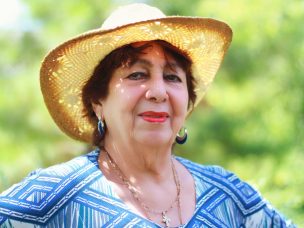ASH 2021
Extranodal Hodgkin Lymphoma: A Case Report
Hodgkin lymphoma is typically centered around the cervical, supraclavicular, and mediastinal lymph nodes. Although involvement of the central nervous system has been documented, it is extremely rare. This case study, published in the Journal of Medical Case Reports, analyzed one of these cases of extranodal Hodgkin lymphoma in the central nervous system. The patient in this...
The Gut Microbiota and R/R Hodgkin Lymphoma
A study, published in Blood, on the role of gut microbiota (GM) in response to chemo-immunotherapeutic agents in patients with relapsed/refractory (R/R) B-cell lymphoma will be presented at the 2021 ASH Annual Meeting & Exposition. Over three years, the researchers collected data from a cohort of 17 patients with R/R classic Hodgkin lymphoma (cHL) or...
COVID-19 Antibody Production in Patients With Lymphoma
One of the studies that will be presented at the 2021 ASH Annual Meeting & Exposition is a retrospective study, published in Blood, on the efficacy of the COVID-19 vaccines in adult patients with lymphomas undergoing immunochemotherapy. Data were gathered from adult patients with lymphomas identified to have received the COVID-19 vaccine, either two doses...
How Age, Sex, and Race Impact Immune Profiles
This study, published in Blood, highlights the limited data on epidemiologic factors that impact immune profiles of patients with hematologic malignancies. The study’s flow cytometric analyses of different hematologic malignancy immune panels with regard to age, race, and sex will be presented at the 2021 ASH Annual Meeting & Exposition. Flow cytometric analyses of immune panels including...
Promising New Drug for R/R Hodgkin Lymphoma
Findings from the expansion of a phase 1 study of tinostamustine in patients with relapsed/refractory (R/R) Hodgkin Lymphoma (HL) will be presented at the 2021 ASH Annual Meeting & Exposition. Tinostamustine is a developing therapy designed to improve drug access to DNA strands, induce DNA damage, and counteract DNA repair in cancer cells. A dose-escalation study...
Treating Hodgkin's Lymphoma During a Drug Shortage
What can clinicians do to continue treating patients with Hodgkin’s lymphoma (HL) during a widespread shortage of the drugs typically used to do so? This study, published in Blood, reviewed this predicament experienced by hematologists/oncologists in Mexico from mid-2019 to mid-2021. The study will be presented at the 2021 ASH Annual Meeting & Exposition. During the drug...
ABVD Dose Reduction in Older Patients With Hodgkin Lymphoma
Classic Hodgkin lymphoma can usually be treated successfully in younger patients using ABVD (Adriamycin, bleomycin, vinblastine, and dacarbazine). However, older patients with the disease have a relatively poor prognosis, and ABVD’s efficacy and tolerability in this population are uncertain. This retrospective study, published in Internal Medicine, analyzed the outcomes of older patients with classic Hodgkin lymphoma treated...
Race/Ethnicity, Age, and Hodgkin Lymphoma Outcomes
Although Hodgkin lymphoma is treatable, past population-based studies have reported worse survival outcomes for non-white children, adolescents, and young adults. This study, published in Cancer, analyzed the survival rates of this patient population with Hodgkin lymphoma while adjusting for sociodemographic factors and treatment. This study relied on data from 4,807 patients with Hodgkin lymphoma younger than...
Long-Term Cause-Specific Mortality in Hodgkin Lymphoma
This study, published in JNCI: Journal of the National Cancer Institute, examined the impact of treatment-related morbidity on long-term, cause-specific mortality in patients with Hodgkin lymphoma. The study included 4,919 patients with Hodgkin lymphoma who were treated before age 51 between 1965 and 2000. The median follow-up was 20.2 years. The researchers used the data gathered...
More Medical News














